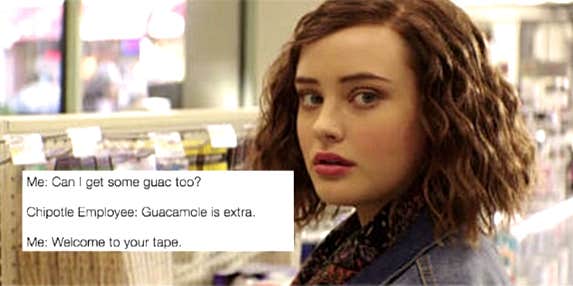At some point in time between the extinction of dinosaurs and the Paleolithic era, some random human decided that mental illness was not real.
OK.
So, that's not a fact, however, it does feel like those who suffer from any form of mental illness have been fighting to be taken seriously for just about ... forever.
We've only now begun to feel like maybe our voices are being heard.
Maybe.
The mental health resources available now for those that struggle are bursting at the seams compared to when I was a teenager (back in the Paleolithic era) and yet, there's still something wrong with the system.
Stigma: a mark of disgrace or infamy; a stain or reproach, as on one's reputation.
The stigma surrounding mental health is so real it's almost palpable.
I'm almost 35-years-old and still fear the shame of admitting my disorders.
RELATED: 10 Brutal Truths About Being Married To Someone Who's Bipolar
Think about it: When you hear someone has cancer or some other dreadful disease, your first reaction may be to comfort them, yes?
But when you hear someone has been diagnosed with ... say, depression or anxiety, your first instinct may be to think (or say if you're really bold) that they're just being dramatic.
Which brings me to my next point.
Have you seen 13 Reasons Why on Netflix? It's based off the book of the same name by Jay Asher and is described by Wikipedia as such:
The show revolves around a student who kills herself after a series of culminating failures, brought on by select individuals within their school.
Hannah Baker, who dies by suicide, creates 7 cassette tapes with each side dedicated to one person that influenced her decision to end her life; hence the title 13 Reasons Why.
At the beginning of each tape, Hannah starts off with the following statement: Welcome to your tape.
And as with everything today on the internet, it has become a meme.
A dangerous meme.
Things are so easily shareable; with a single click of an icon, a meme or joke or GoFundMe is shared among your followers and friends.
That could be an amazing tool if used right, but when it's used to spread the stigma surrounding mental issues, it is just. so. wrong.
If we can think of social media as a superhero, I think we can all see a bit clearer what it's truly meant for.
If social media's super power is sharing information across all platforms, wouldn't you want to use that power for good?
No one wants to be the villain. The villain never wins.
Yet, we share things that could cause pain without even thinking twice.
Let's all just stop for a second and realize that the actual one with power is yourself, not Facebook or Twitter.
YOU have the power to make things better.
YOU have the power to stop spreading hate.
YOU have the power to spread the love.
Use your power wisely.
Related Stories From YourTango:  Netflix / Twitter
Netflix / Twitter 
